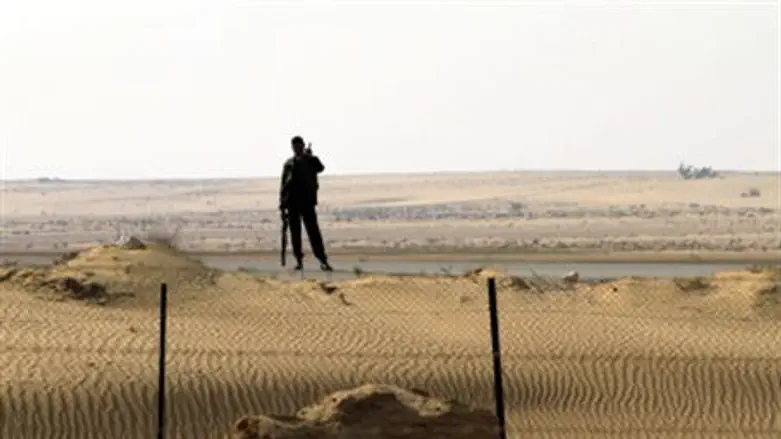
The Al-Tarabin tribe, one of the largest Bedouin clans in the Sinai desert, has decided to oppose illegal African infiltration into Israel. In a meeting this week, senior members of the tribe said they oppose human trafficking and do not wish to see their tribal lands used by smugglers.
Bedouin leaders will meet again in mid-January, and plan to end that meeting by signing on a document requiring members of their clans to oppose the smuggling of humans and to do what they can to fight the phenomenon.
Tens of thousands of people from various African countries have entered Israel illegally in recent months. The illegal entrants, most of them job seekers, cross into Israel from Sinai with help from Bedouin smugglers.
The government has begun work on a fence along the border between Israel and Egypt in an attempt to keep infiltrators out. However, while the fence may slow infiltration in the long term, in the short term it has been linked to a dramatic increase in the pace of infiltration.
Debate has raged within Israel over Israel's obligations, if it has any, to the infiltrators. On the political Left some have compared the infiltrators to Jewish refugees who entered pre-state Israel in defiance of Britain, and have said that foreign entrants should be allowed to remain in the country.
On the other hand, Israelis living in the poor neighborhoods and cities that have become home to thousands of illegal entrants tend to oppose calls for infiltrators to be allowed to stay. Many residents of such neighborhoods have joined the new “Ramat Aviv First” program, which calls to house infiltrators in upper-class neighborhoods, in order to put left-wing support for the infiltrators to the test.
Prime Minister Binyamin Netanyahu recently released a statement warning Israelis not to take the law into their own hands when dealing with infiltrators. His video statement followed non-violent demonstrations against the influx of illegal entrants into southern Tel Aviv.